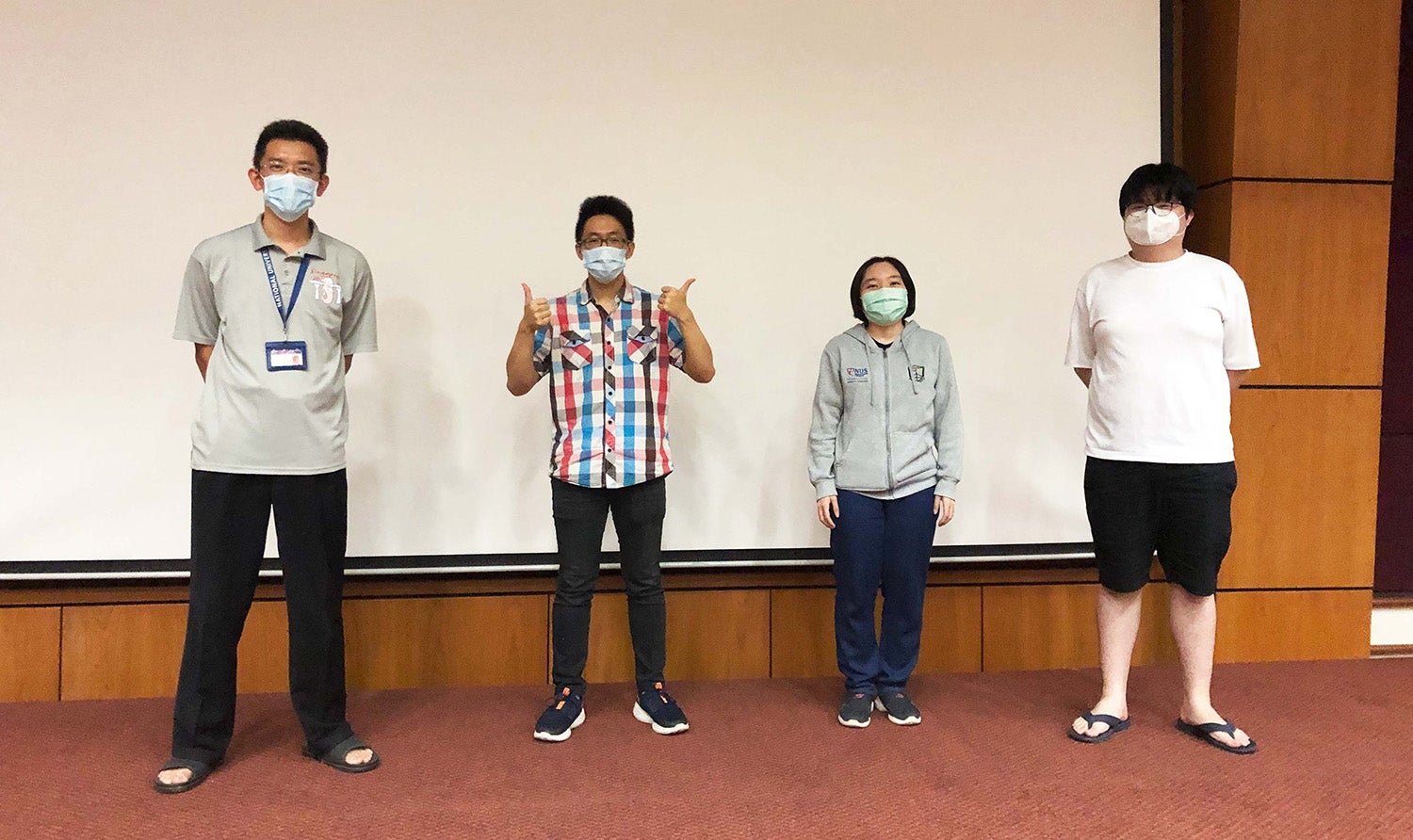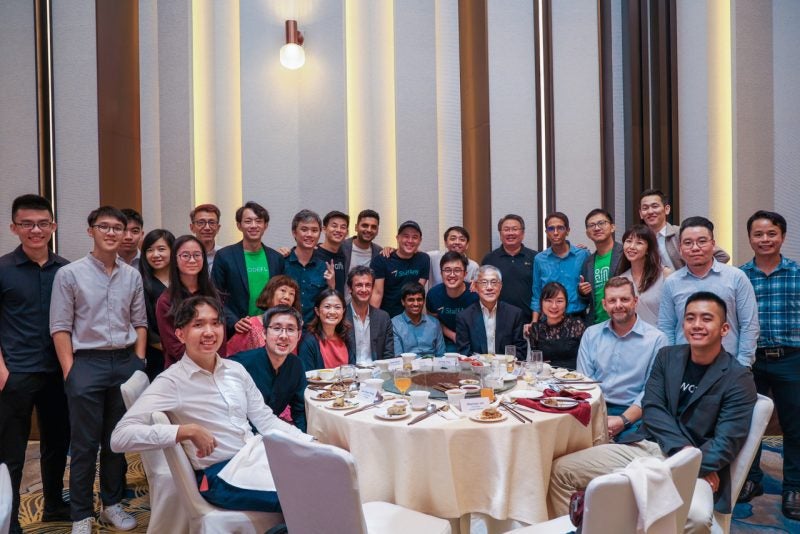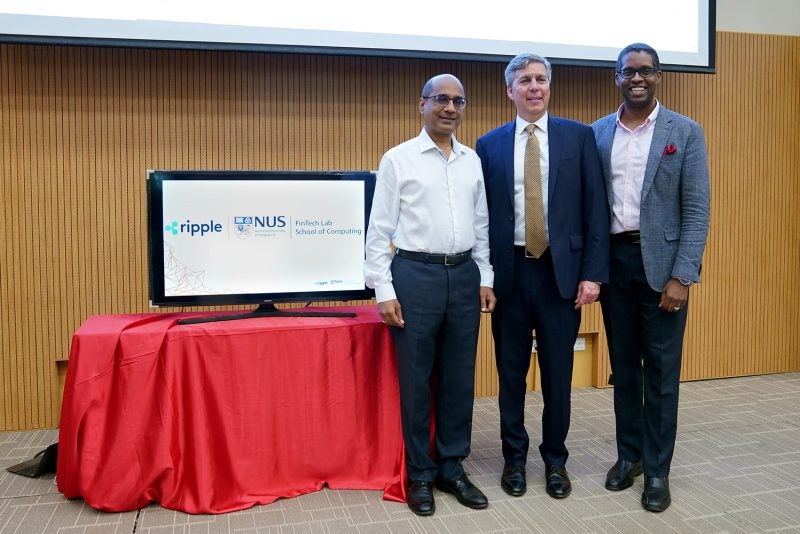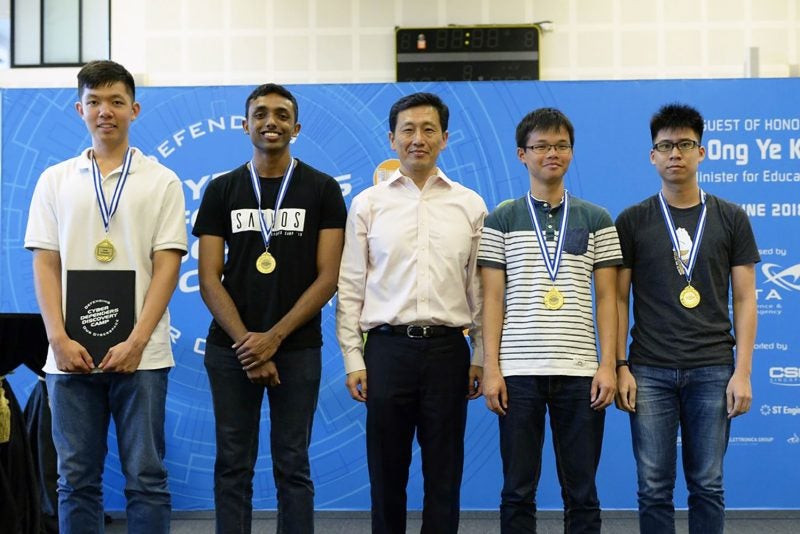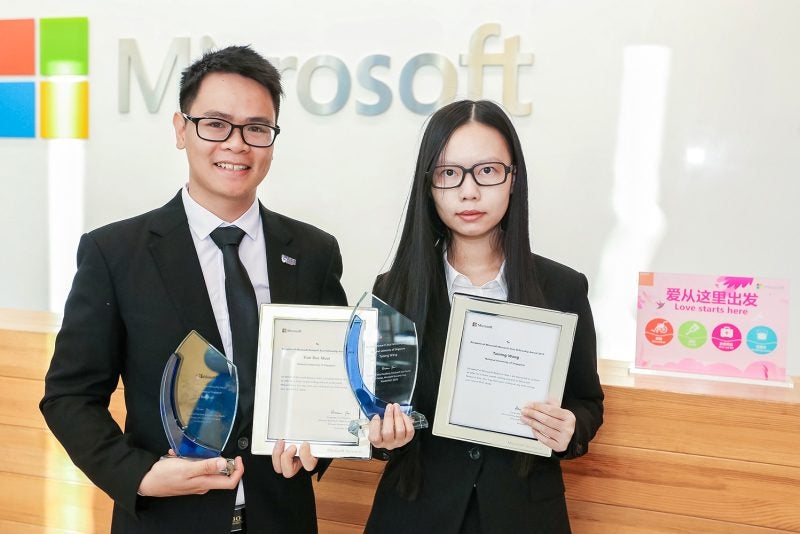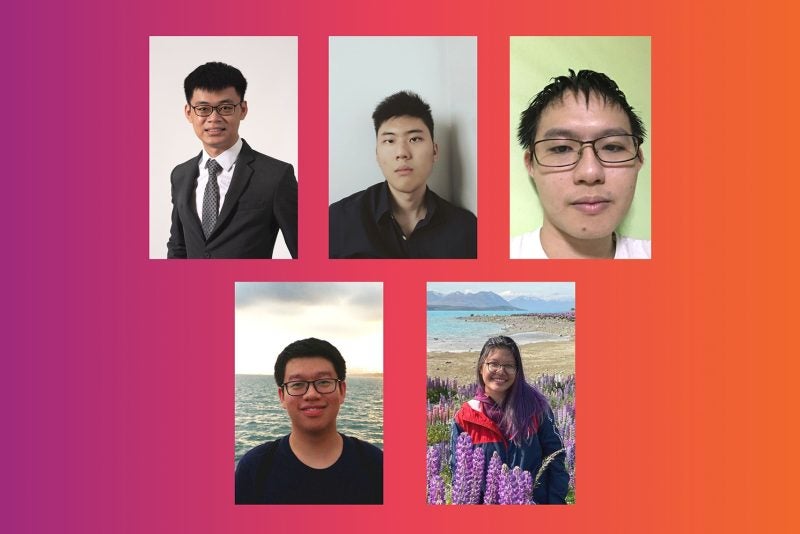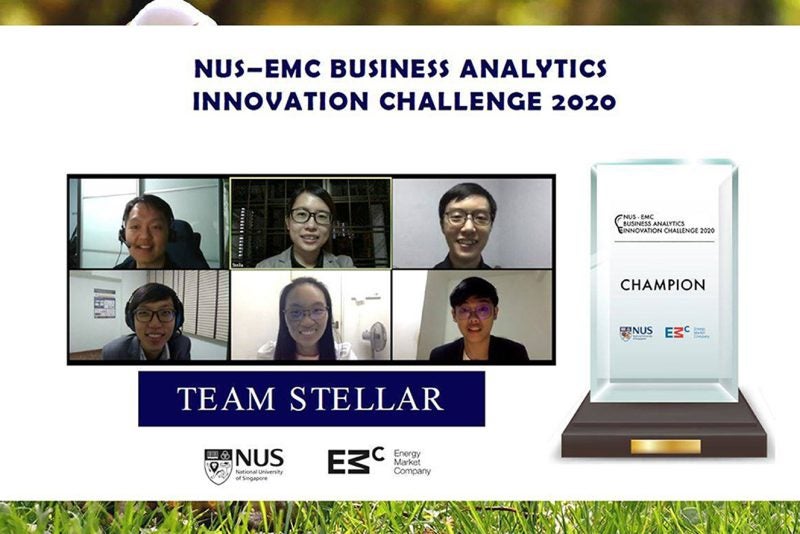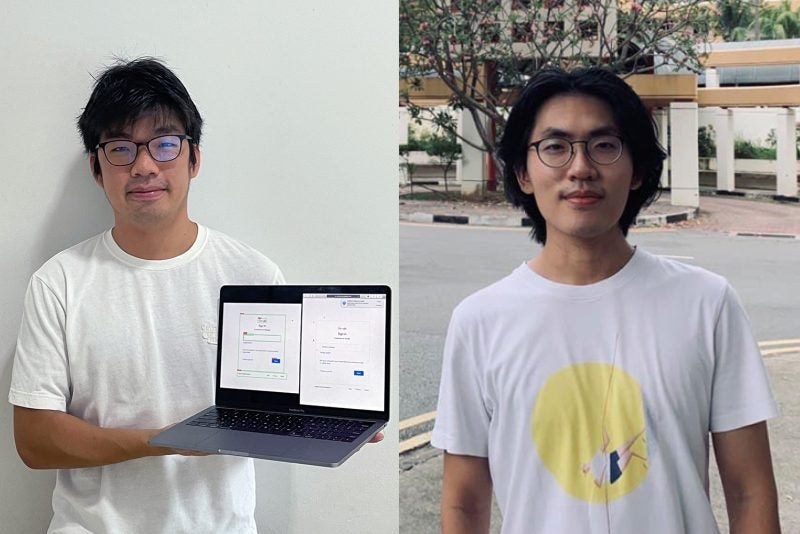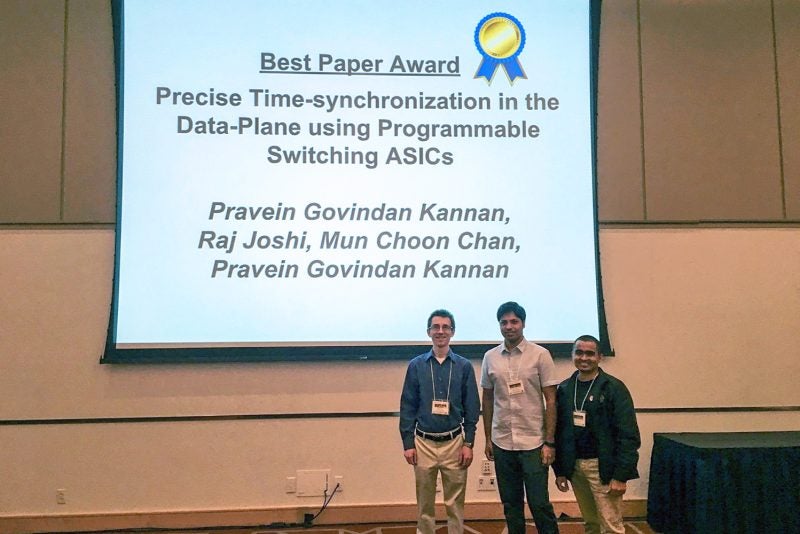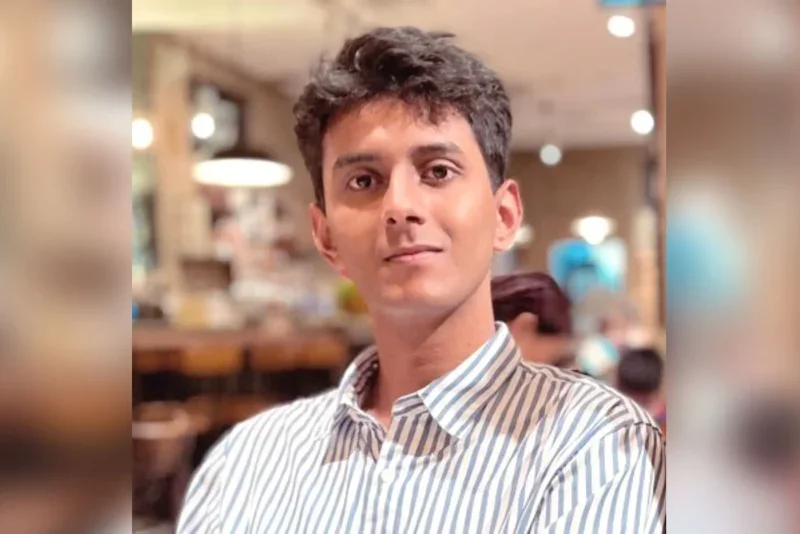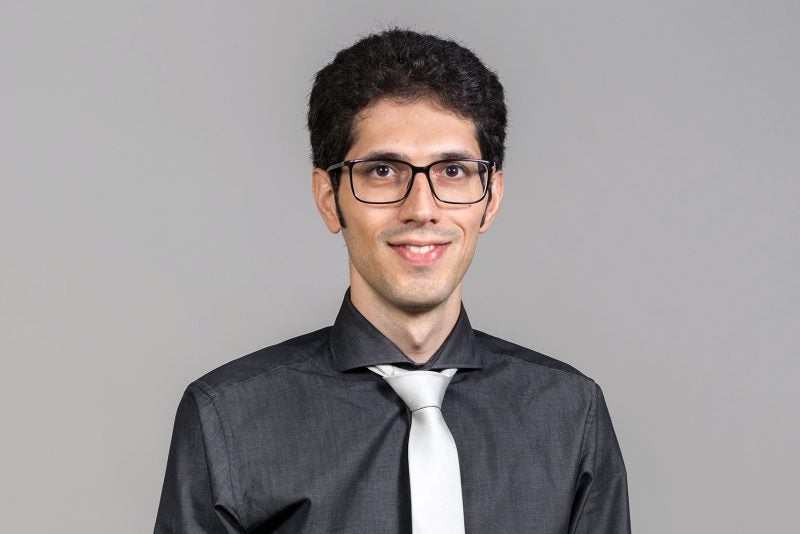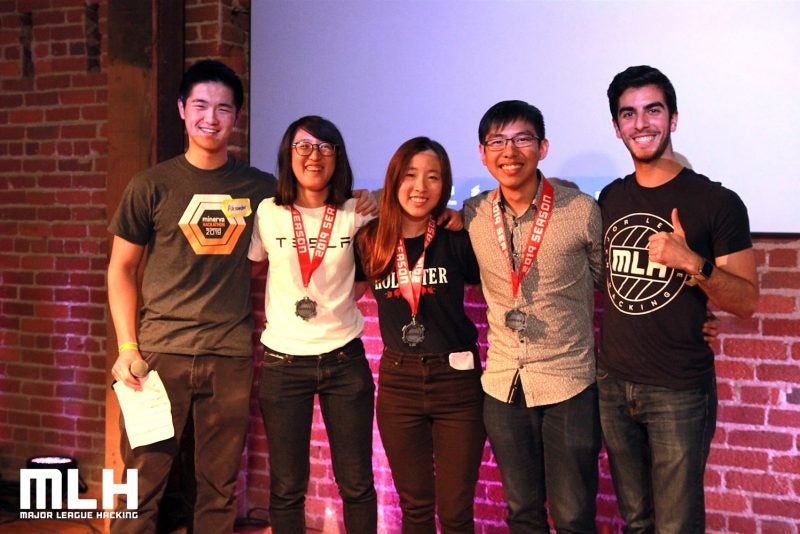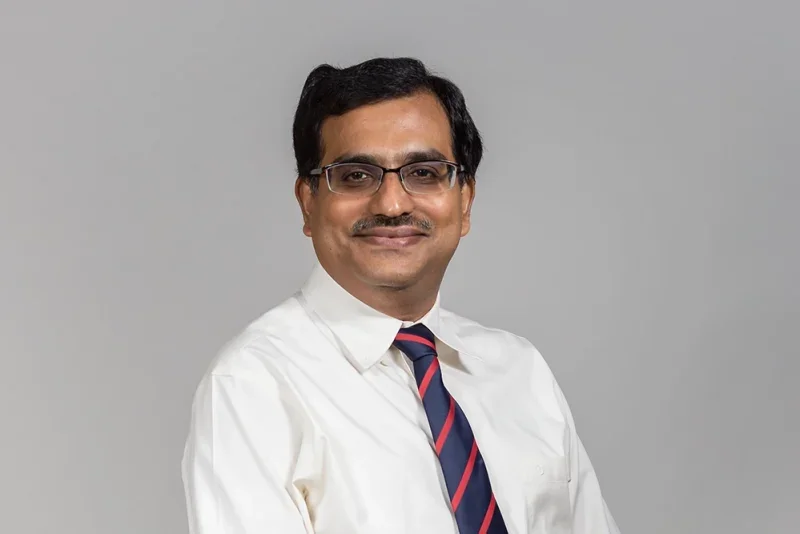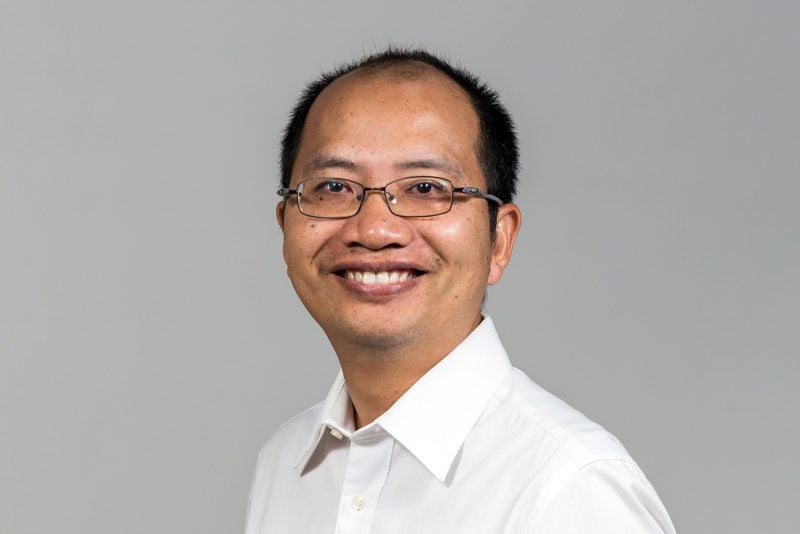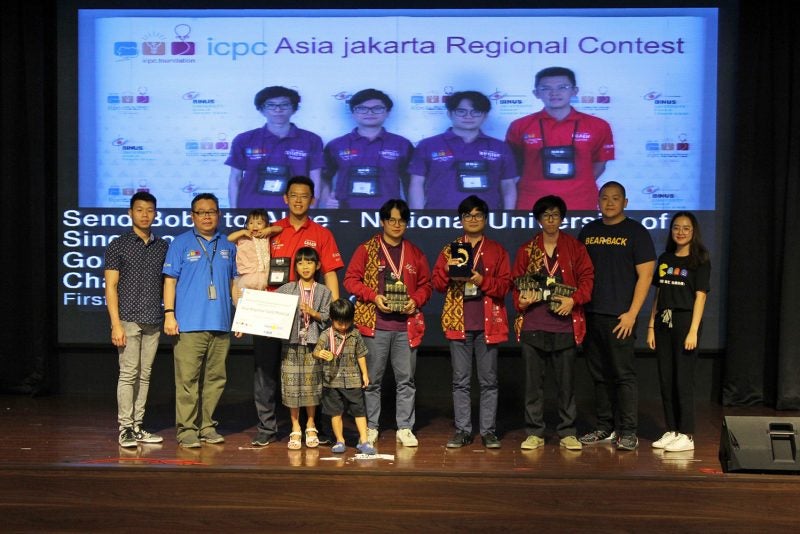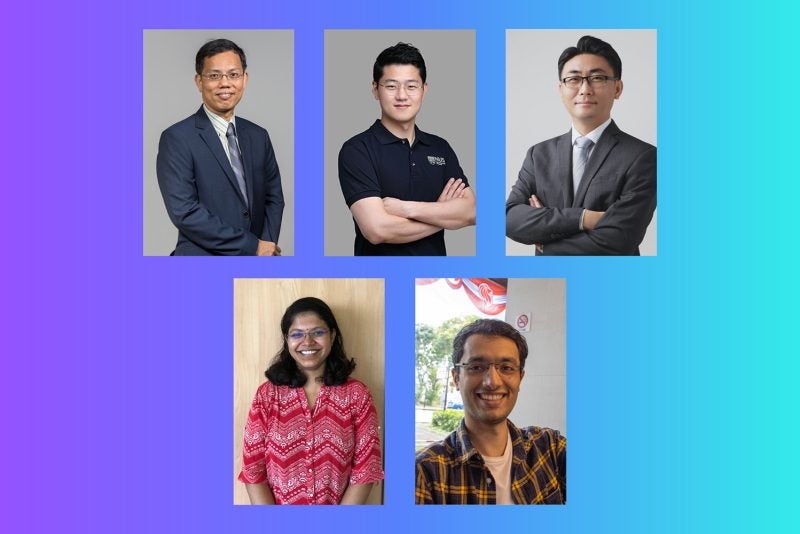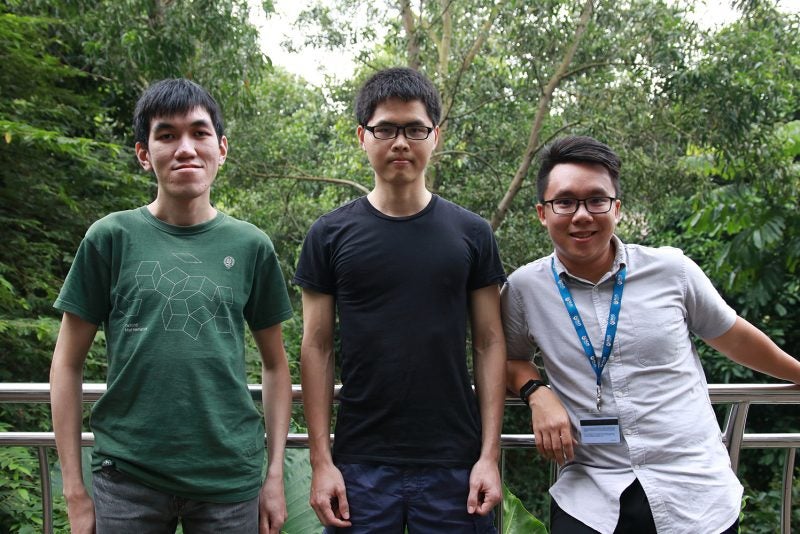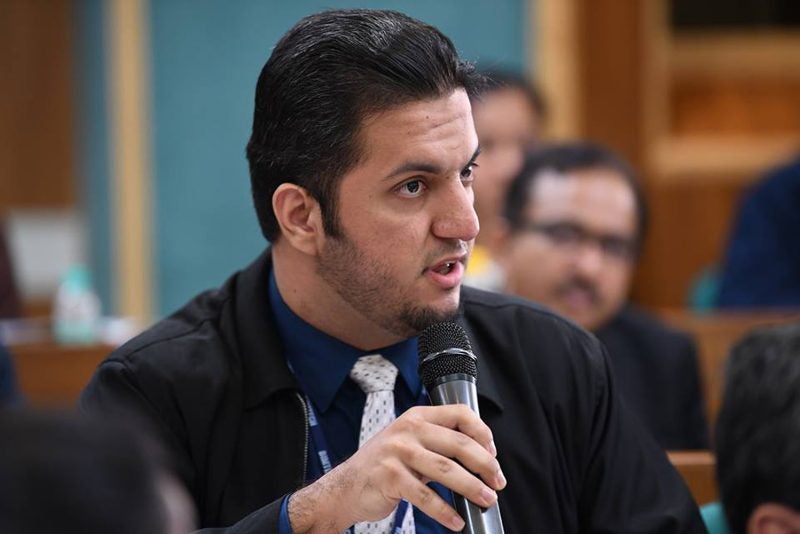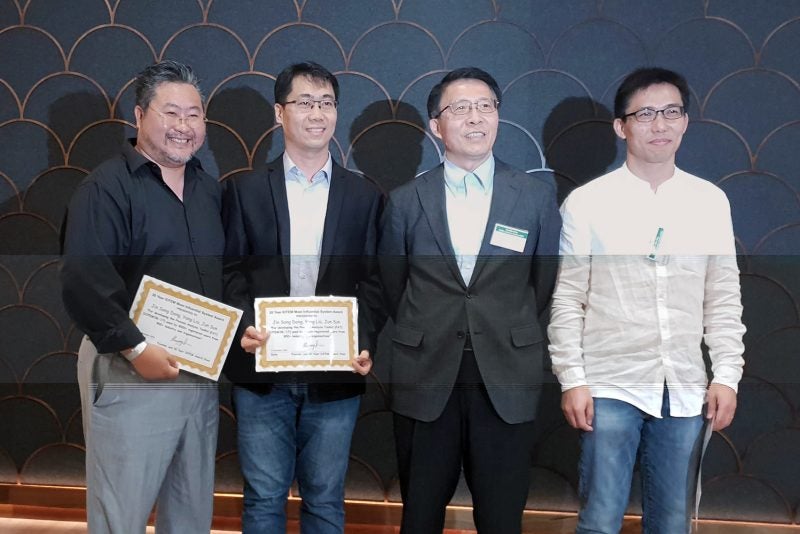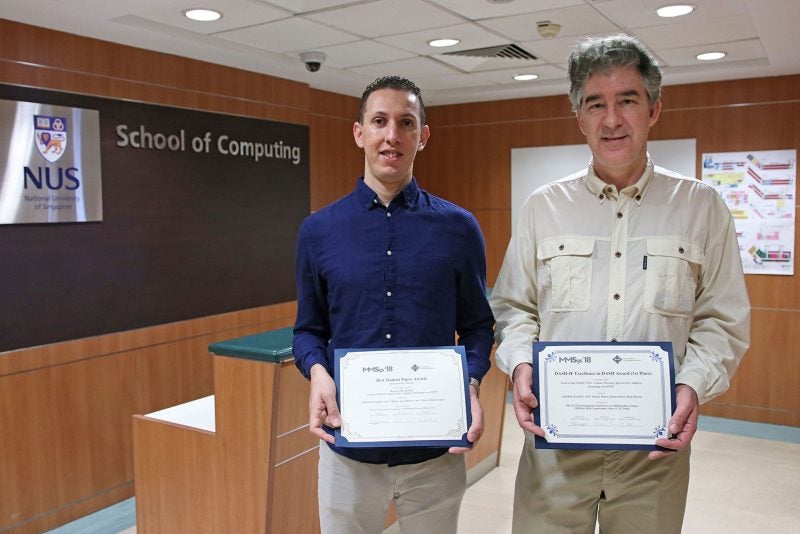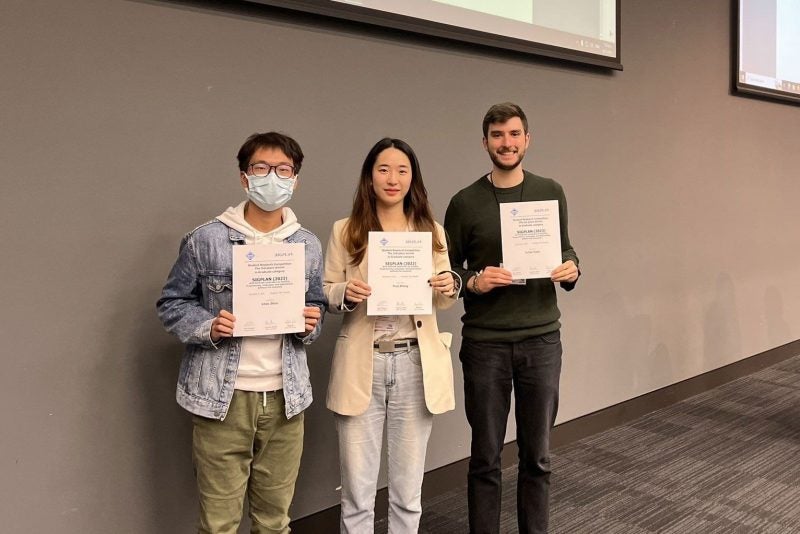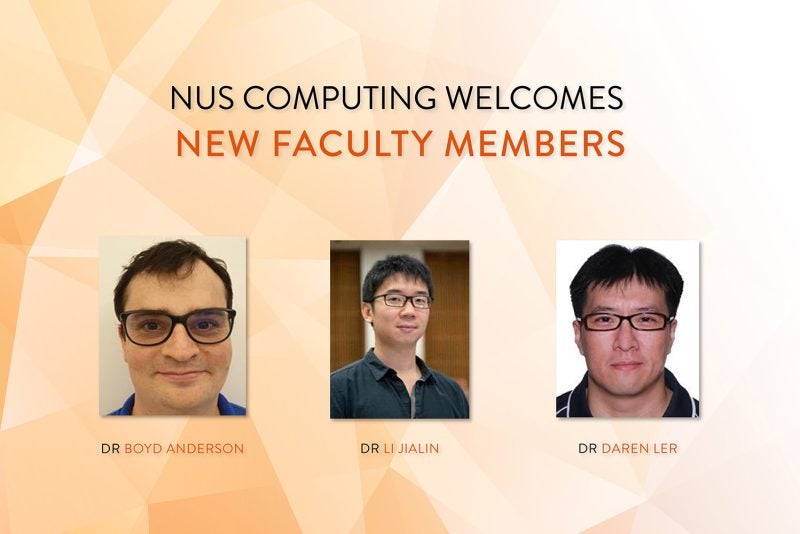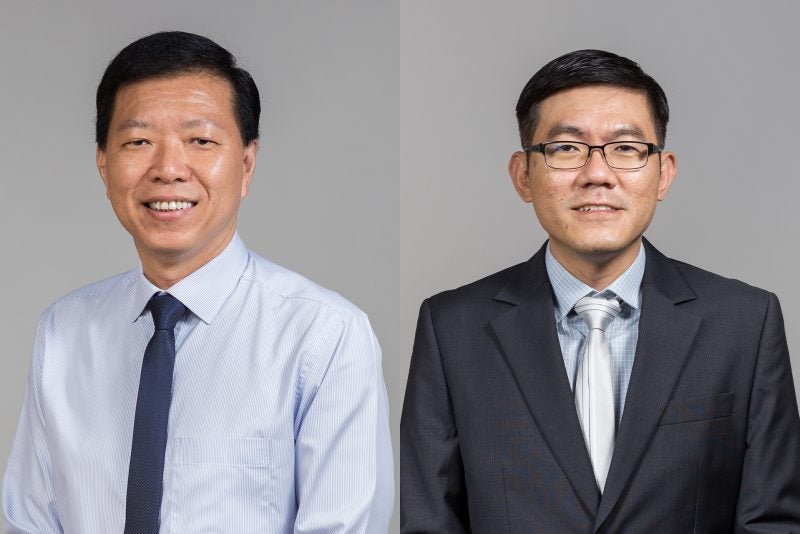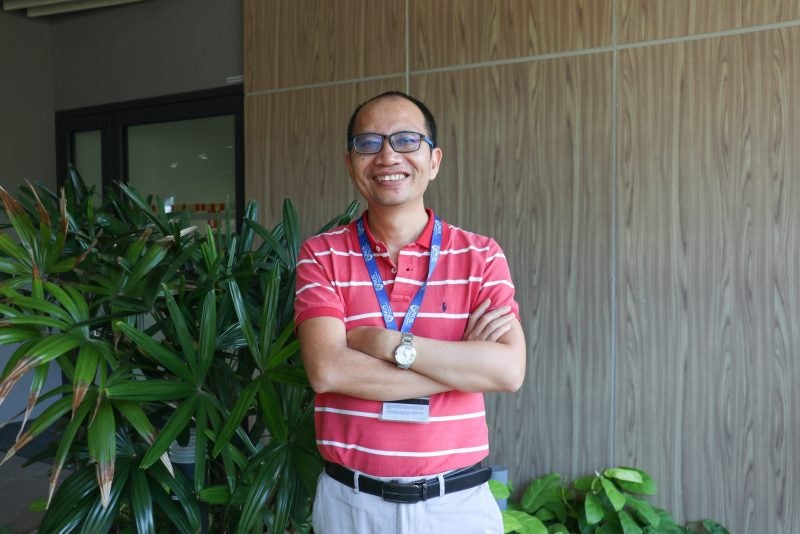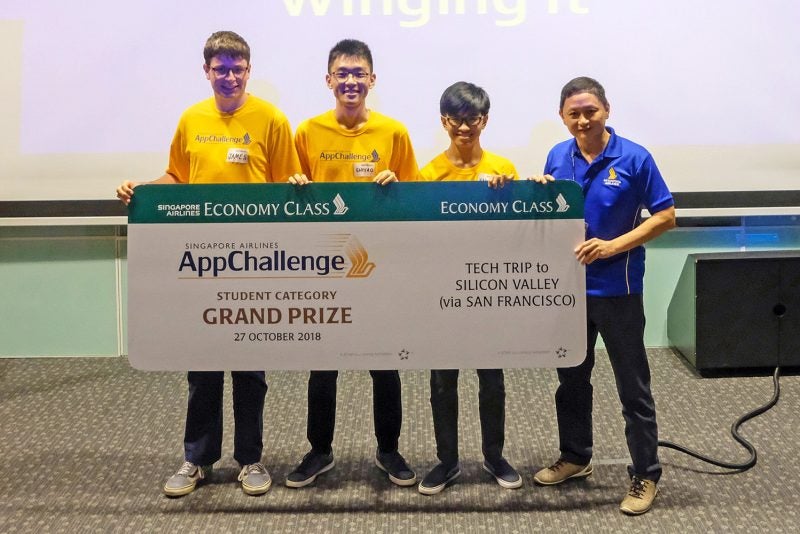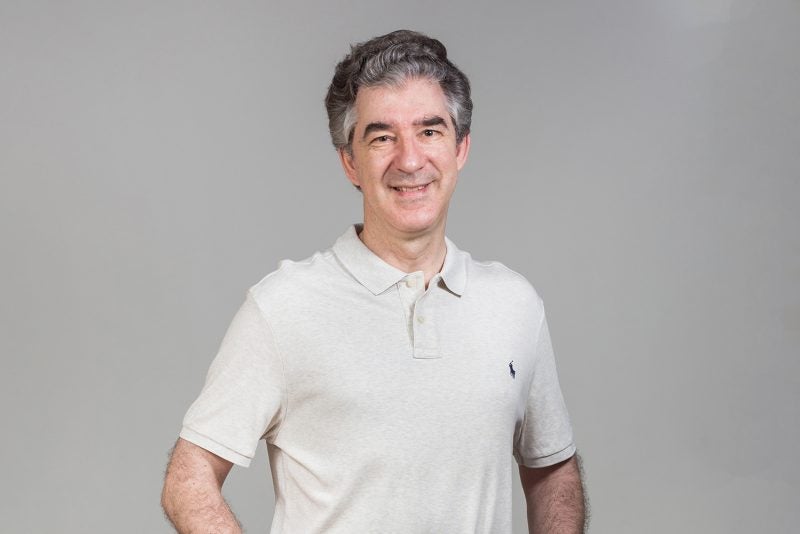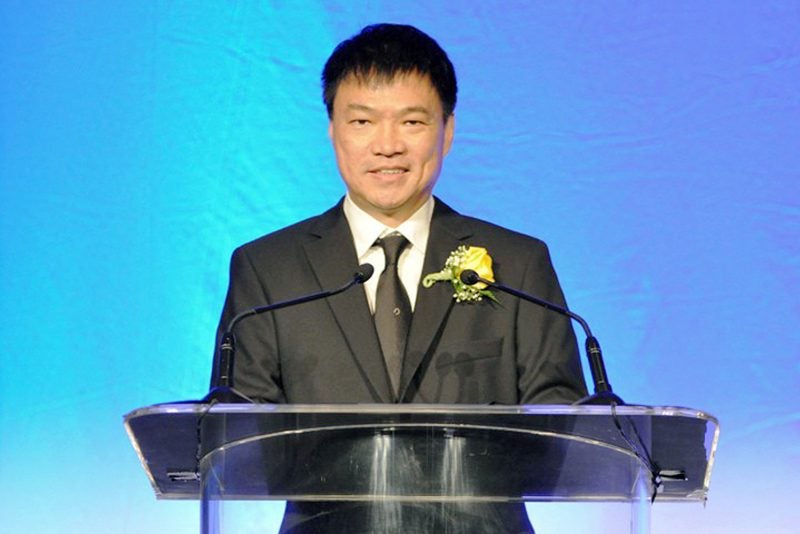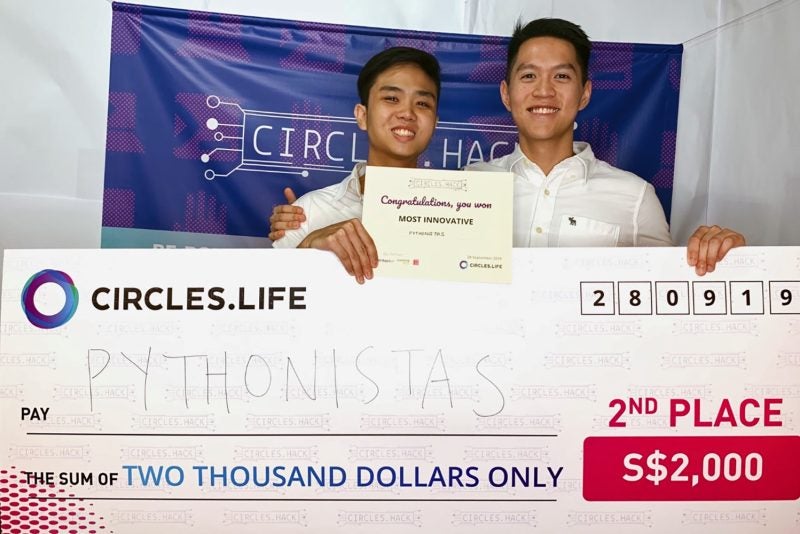01 December 2021 – NUS Computing teams continued to dominate the International Collegiate Programming Contest (ICPC) Jakarta Regional Contest this year, with three NUS teams taking the top three spots at the contest.
Team 7 Halim, Team That Time Our Solution Got Hacked, and Team Send Bobs to Alice, won first, second and third place respectively.
A total of 10 NUS teams participated in the contest from 20 to 21 November, with seven NUS teams placing among the top 12.
“I am proud of the teams’ excellent performances,” said Dr Steven Halim, senior lecturer at NUS Computing and the ICPC coach for the NUS teams. “We are blessed to have several strong teams competing for NUS.”
The ICPC contest is the world’s oldest and most established algorithmic programming contest for university students. Teams of three students race to solve as many of the algorithmic problems presented. Subsequently, top scoring teams from the ICPC regional contests will compete in the contest’s annual global championship round – the ICPC World Finals.
NUS Computing’s participation in the 2021 ICPC Asia Jakarta Regional Contest was supported by generous contributions from Indeed, Sea Group, SenseTime, Jump Trading, Citadel Securities, Hudson River Trading, and DRW.
A surprise win
Winning team Team 7 Halim solved nine out of 13 problems during the contest. Comprising two final-year students, Yehezkiel Raymundo Theodoroes (Computer Science) and Lim Li (Computer Science & Applied Mathematics), as well as freshman Edbert Geraldy Cangdinata (Computer Science), the trio managed to pull ahead by being the first team to solve problem K in the second hour of the contest. Most teams did not solve problem K at all, or only managed to do so much later into the contest.
Team 7 Halim confessed that they initially did not have high expectations for their performance.
“We had a small talk before the competition about what we want to achieve and set our goal for a bronze medal in the top 12 positions,” said Theodoroes.
Added Lim: “I was definitely quite rusty, as I had not practised competitive programming for a while, and was also busy studying for exams as the ICPC was during our exam period. The contest was quite fun as there were many interesting questions, and I am quite happy with our results.”
Cangdinata accepted Theodoroes and Lim’s invitation to complete the team, as he simply wanted to “have fun together in ICPC, regardless of the outcome”.
“This was the first ICPC I have ever participated in, so it was an interesting experience, to say the least. Personally, I found the aspect of being in a team to be more fun than I expected and showed me a new aspect of competitive programming I haven’t explored prior to this. During the contest, it was nice to be able to discuss with someone else about a certain idea you have because it resulted in us being able to build on our knowledge and come up with a solution together,” said Cangdinata.
The team members tapped on their different strengths to complement each other.
“As the seniors in the team, Lim Li and I had more experience competing in ICPC, and are usually interested in different problem categories. Meanwhile, Edbert brings a new perspective to the team as he is more familiar with the latest algorithms and data structures,” explained Theodoroes on behalf of the team.
“Throughout the five hour competition, we also managed our stamina carefully. We switched coders frequently, we ate snacks to make sure we had energy, and we went to the toilet once in a while for a little walk and inspiration,” He added.
As the winner of the contest and the best performing NUS team, Team 7 Halim will represent NUS at the ICPC World Finals 2022. The 2022 Finals will likely take place in 2023 due to delays.
“By 2023, two of the three members would have graduated from university. This will pose a huge logistical challenge when it comes to team trainings, but we will find a way to make it work when the time comes,” said Dr Halim.
Forging ahead despite obstacles
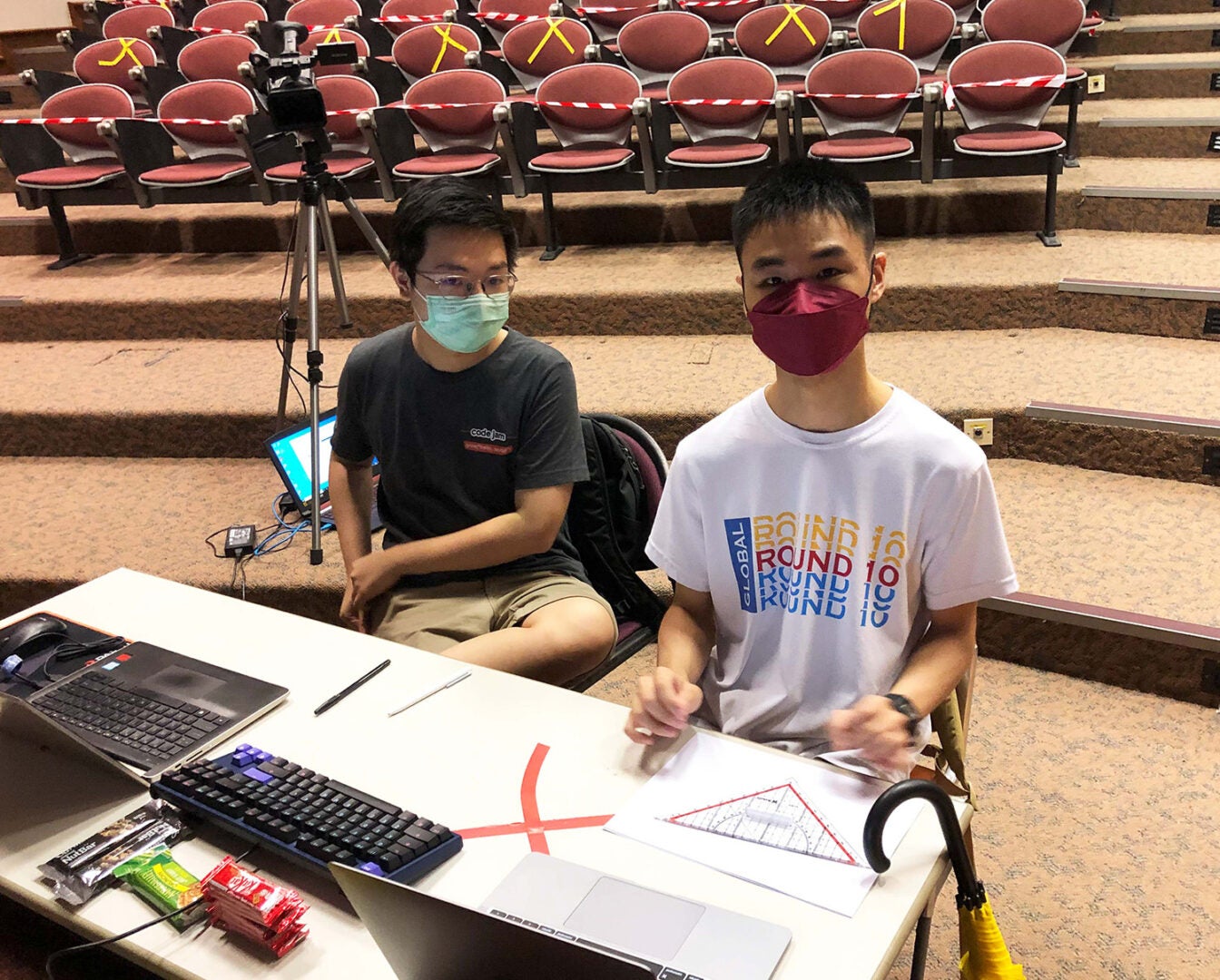
Team That Time Our Solution Got Hacked were faced with multiple obstacles at the beginning of the contest, but this did not deter them from going all out in the contest.
The team initially comprised Computer Science freshmen Nicholas Patrick, Rama Aryasuta Pangestu, and Udit Sanghi. However, due to the travel restriction measures imposed and a mishap, Sanghi was unable to join the team for the competition.
Despite having to compete with only two members instead of three, and this being their first time participating in the ICPC regionals, Patrick and Pangestu went on to clinch second place in the contest.
“We were not used to the ICPC contest setting as the contests each of us usually take part in are individual contests. Moreover, we were underprepared for onsite ICPC rules because we practiced online with one computer per member, as opposed to one computer per team. In our practice, when we need a long algorithm, we can utilise online resources, whereas during the contest, we have to retype our algorithms we prepared before the contest,” added Patrick on behalf of the team.
“We were happy we could achieve this, especially considering one of our team members could not join. We hope to do even better next year, and make it to the world finals. We still have plenty of things to learn and mistakes to fix,” said Patrick.
“We’d like to thank Dr Steven Halim for the chance to participate in weekly contests as practice. We would also like to give huge thanks to Dr Halim and Prof Tan Sun Teck for providing us with tons of snacks before, during, and after the contest,”
Final hallelujah
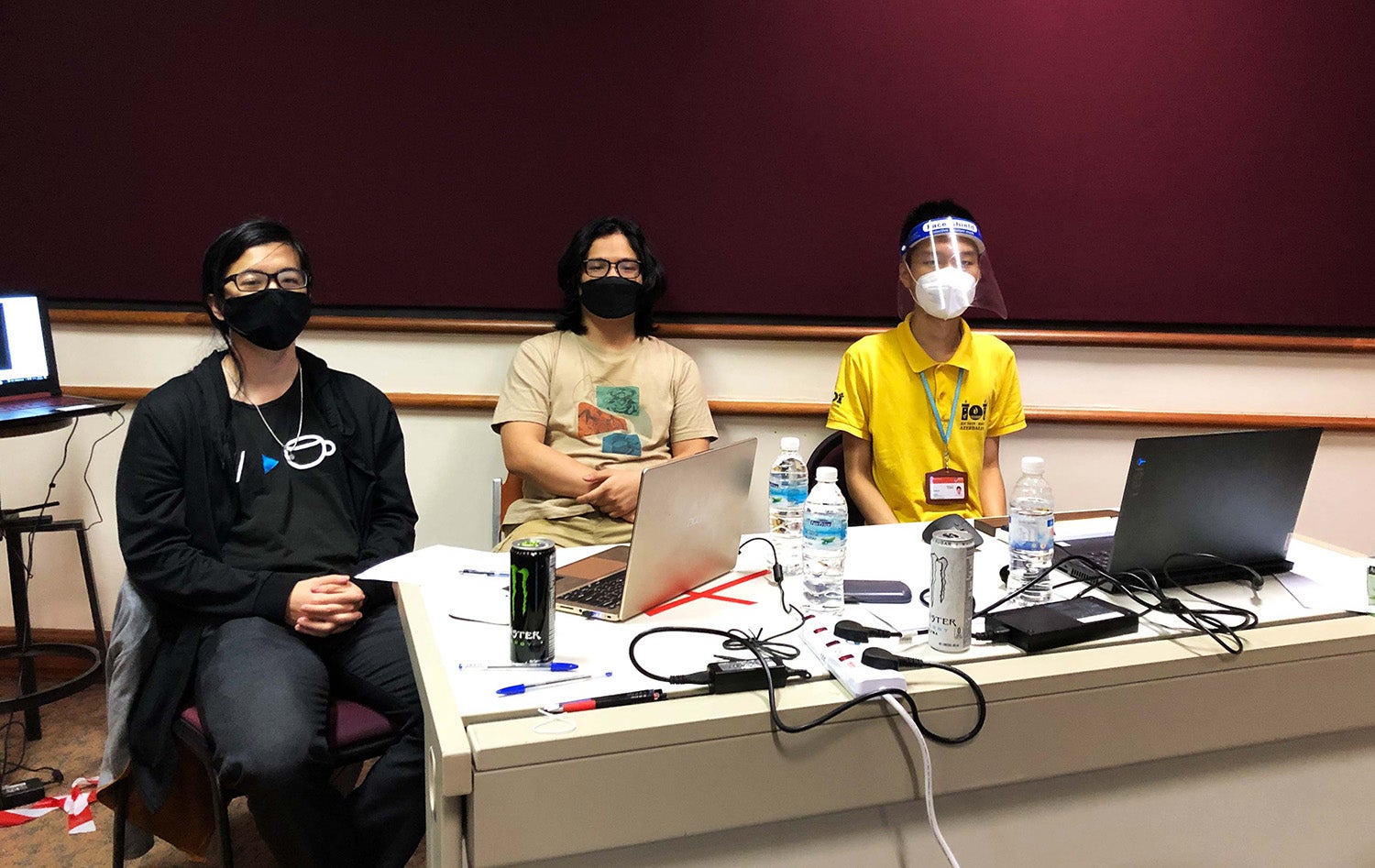
Team Send Bobs to Alice capitalised on their strengths in solving problems involving data structures to finish third in the contest.
The team consisted of final-year Computer Science students Tan Phat Tran, Quang Tuan Le and Computer Science freshman Hong Duc Bui, all of whom have participated in previous editions of the ICPC.
“The results are not as good as what we want, however, we are satisfied with it,” said Tran. “We were able to solve our first seven problems quite quickly. However, we got stuck on our eighth and ninth problems and other teams caught up to us,”
Tran and Le both won the 2019 ICPC Asia Jakarta Regional Contest, and this year’s third place win marks their last ICPC contest before they graduate. Teammate Bui hopes to form a new team and qualify for next year’s ICPC World Finals.
The trio expressed their gratitude to ICPC coach Dr Halim, as well as the organisers and sponsors for this opportunity.

